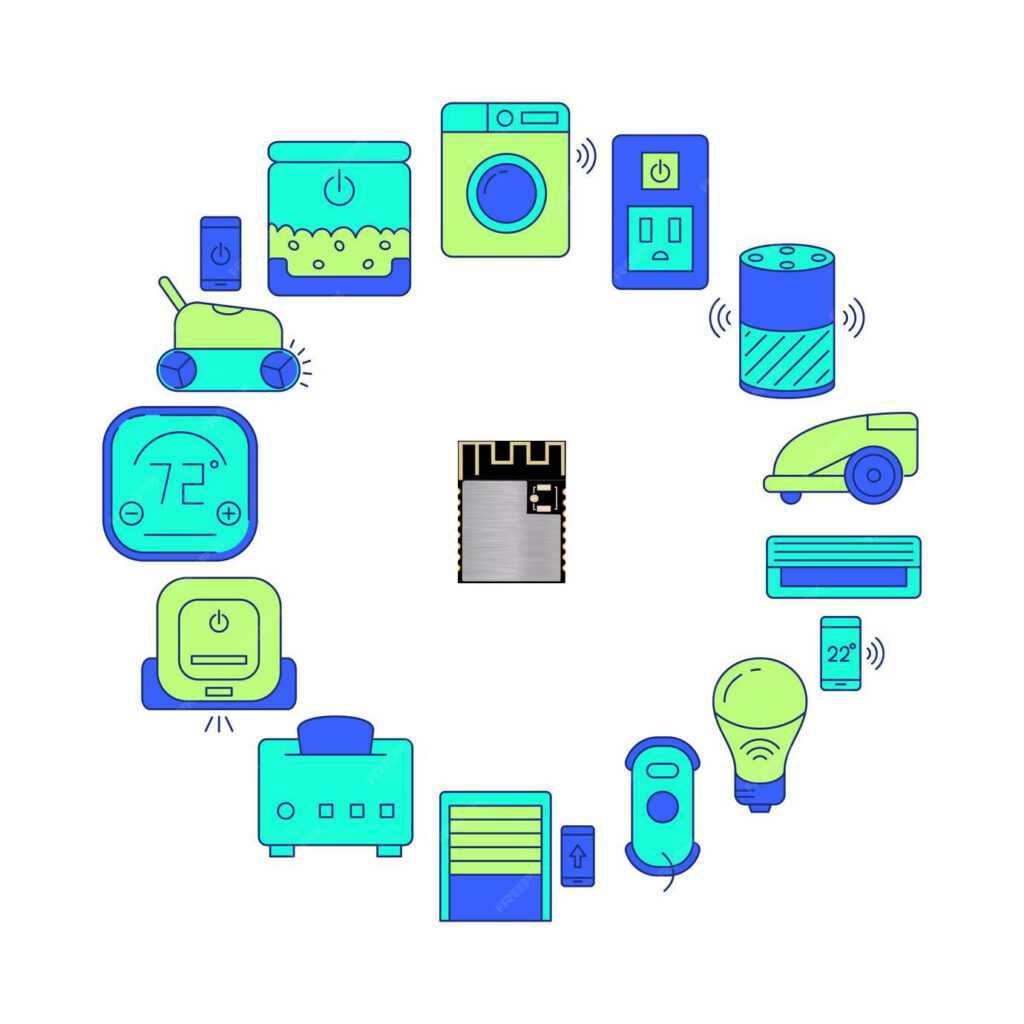
Introduction to Bluetooth Modules
Bluetooth modules are versatile components that enable wireless communication between devices. They are widely used in various applications due to their reliability, low power consumption, and ease of integration. This article explores how different Bluetooth modules are applied in various scenarios, highlighting their unique features and benefits.
Audio Applications
Bluetooth modules are extensively used in audio devices to enable wireless transmission of high-quality audio signals. These modules are commonly found in wireless speakers, headphones, and car audio systems. They provide high-fidelity audio streaming with minimal latency, ensuring a seamless listening experience. Features such as active noise cancellation and enhanced audio codecs further improve the sound quality, making them ideal for applications where audio performance is critical.
Internet of Things (IoT)
In the realm of IoT, Bluetooth modules serve as the backbone for connecting numerous devices. They facilitate communication between sensors, actuators, and control systems, enabling seamless data exchange and remote monitoring. These modules are designed to operate efficiently in low-power environments, making them suitable for battery-operated devices. Their ability to switch between different modes allows them to adapt to varying data transmission requirements, whether it’s for smart home automation or industrial sensor networks.
Healthcare and Fitness
Bluetooth modules play a pivotal role in healthcare and fitness applications. They enable the transmission of data from wearable devices such as heart rate monitors, fitness trackers, and smartwatches to smartphones or other monitoring systems. This real-time data collection is crucial for health monitoring and fitness tracking. The modules’ reliability and low power consumption make them ideal for continuous use in medical and fitness devices, ensuring that users can monitor their health metrics without frequent battery replacements.
Industrial Automation
In industrial settings, Bluetooth modules are instrumental in enabling wireless communication between equipment and control systems. They allow for the remote monitoring and control of machinery, sensors, and other industrial components. This wireless connectivity enhances operational efficiency by reducing wiring costs and enabling flexible deployment of sensors and actuators. The robustness of Bluetooth modules ensures they can operate reliably in challenging industrial environments, contributing to improved productivity and reduced downtime.
Automotive Applications
Bluetooth modules are integral to modern automotive technology, providing wireless connectivity for in-car entertainment systems and telematics. They enable drivers and passengers to stream music, make hands-free calls, and access navigation services. Additionally, these modules support vehicle-to-vehicle and vehicle-to-infrastructure communication, which is essential for advanced driver assistance systems and autonomous driving technologies. Their ability to operate in the harsh conditions of a vehicle’s interior makes them a reliable choice for automotive applications.
Retail and Hospitality
In retail and hospitality environments, Bluetooth modules are used for indoor navigation, asset tracking, and customer engagement. They enable the creation of interactive shopping experiences by providing customers with personalized offers and product information based on their location within a store. Additionally, these modules assist in tracking inventory and managing assets, ensuring that businesses can operate efficiently and provide a higher level of service to their customers.
Smart Cities
Bluetooth modules are key components in smart city initiatives, supporting applications such as traffic management, environmental monitoring, and public safety. They enable the deployment of sensor networks that collect data on air quality, noise levels, and traffic flow, providing city planners with valuable insights for urban development and resource allocation. The low power consumption and wide coverage of Bluetooth modules make them suitable for large-scale deployments across urban environments.
Conclusion
Bluetooth modules are versatile and essential components in a wide array of applications. From enhancing audio experiences and enabling IoT connectivity to supporting healthcare, industrial, automotive, retail, and smart city initiatives, these modules provide reliable and efficient wireless communication solutions. As technology continues to advance, the role of Bluetooth modules in creating connected and intelligent environments will only continue to grow, driving further innovation and development across various industries.


